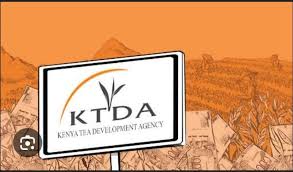
Parliament has initiated investigations into the recent low bonus payments to small-scale tea farmers managed under the Kenya Tea Development Agency (KTDA).
The National Assembly’s Departmental Committee on Agriculture will lead the probe, which begins on Thursday, following widespread concern from farmers over reduced earnings.
The committee, chaired by Tigania West MP John Mutunga, is expected to meet officials from the Ministry of Agriculture, the Tea Board of Kenya, KTDA, tea brokers, and marketers to establish factors contributing to the reduced payments.
On Tuesday, the committee held a planning meeting at Parliament Buildings to outline its schedule of appearances and field visits during the investigation.
“Other than summoning the Ministry of Agriculture, Tea Board of Kenya, KTDA, and other players, the committee will visit KTDA-run factories in both the East and West of the Rift Valley,” Borabu MP Patrick Osero said after the closed-door session.
“Today’s meeting was to agree on the schedule and rules of engagement. On Thursday, we will meet the Tea Board, KTDA, the Ministry, tea brokers, and other stakeholders before embarking on a tour to meet farmers and factory managers in various regions,” he added.
The committee also resolved to include other MPs from tea-growing areas—among them Aldai MP Maryanne Kittany—during the inquiry sessions.
In addition to reviewing the management and operational models of KTDA-run factories, the MPs said they intend to examine governance structures and the handling of financial matters, including loans undertaken by the entities.
Gatundu South MP Gabriel Kagombe said the investigation was timely and would help clarify concerns among farmers, particularly those from the western tea-growing regions.
“Parliament needs to understand what is happening, and farmers deserve clarity. We need to avoid politicising this issue and instead focus on market and production dynamics that influence tea prices,” Kagombe, who also sits on the KTDA board, said.
KTDA has faced sustained criticism over perceived disparities in bonus payments, with some farmers from counties west of the Rift Valley receiving lower rates compared to their eastern counterparts.
Kagombe explained that yield variations and operational costs may account for part of the difference.
“The average KTDA factory in the West produces about one kilogram per bush annually, compared to about 1.8 kilograms in the East. This difference affects factory efficiency and costs,” he said.
On October 8, 2025, MPs from the West of the Rift Valley called for a review of KTDA’s governance structure to ensure equitable regional representation within the board, management committees, and advisory councils.
In a joint statement, they said: “There is need to ensure fair representation and inclusion of all tea-growing regions in KTDA and related national tea policy bodies.”
Responding to concerns, Kagombe said farmers also play a role in electing capable representatives to directorship positions within KTDA.
Meanwhile, KTDA has sought to reassure farmers, attributing the variations in bonus payments for the 2024/2025 financial year to factors such as market conditions, leaf quality, and regional production dynamics.
KTDA Chairman Chege Kirundi said the differences were determined by auction prices and the quality of teas delivered to factories.
“Price is the key driver of revenues, and the auction is guided by market forces,” he said.
“Teas from some factories fetch higher prices than others because of differences in quality, location, and buyer preferences.”













![[PHOTOS] Three dead, 15 injured in Mombasa Rd crash](/_next/image?url=https%3A%2F%2Fcdn.radioafrica.digital%2Fimage%2F2025%2F11%2Fa5ff4cf9-c4a2-4fd2-b64c-6cabbbf63010.jpeg&w=3840&q=100)

